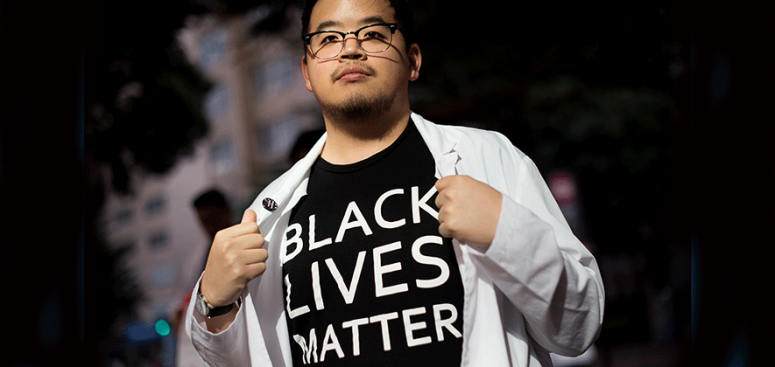Millennials have overtaken Baby Boomers as America’s largest generation, according to the Pew Research Center, but what does it mean for future healthcare leaders of America?
Millennials are purpose-driven, according to Gallup. Their work must have meaning and they seek to do work with a mission and purpose. As a result, more millennial physicians, medical students and healthcare professionals are making waves outside the walls of their clinics, hospitals and universities to improve the healthcare system.
At UCSF, medical students sparked a national movement during a 2015 “die-in” to bring attention to health care disparities as part of a the #whitecoats4blacklives effort.
“As students, we were able to use the momentum from the #whitecoats4blacklives movement to demonstrate the urgency of dealing with the issues of race, micro-aggressions and inequality that affects UCSF faculty, staff, students, and most importantly the patients we all serve,” said student organizer Sidra Bonner, a student in UCSF’s School of Medicine.
Jennifer Adaeze Okwerekwu, a first-year resident in psychiatry and writer for STAT News, wrote about her struggle to balance her career trajectory with her role as a social justice activist. Instead of studying for a final, she attended a rally to save the Affordable Care Act. Okwerekwu articulates her inner dialogue: “But how could I not be at the rally? How can I be part of the solution if I’m not willing to sacrifice for the greater good?”
Nathaniel P. Morris, a resident physician at the Stanford University School of Medicine expressed a similar dilemma in Scientific American: “On January 21st, the day of the Women’s March on Washington, I was working in the hospital as a resident physician assigned to the weekend shift. In some ways, it was like any other day on call. I rounded on patients in the morning, managed medical issues during the day, and evaluated new patients in the emergency department. But, all day, I had a nagging feeling—I wanted to be marching in the streets. I wanted to hold a sign in my hands, to join in the protests.”
Morris notes how doctors, in greater numbers, are writing op-eds, signing petitions and using social media to make their voices heard in the political arena.
Some medical professionals are even taking their Hippocratic oath to the halls of Congress and filling congressional seats or running for public office.
Duke University professor and physician assistant Perri Morgan, who visited Healthforce Center in March, models activism and advocacy for future generations of healthcare leaders by advocating for North Carolina’s Medicaid expansion. According to Morgan, white coat activism will improve health policies in this country: “I think the level of civic engagement will be good for our democracy in the long term.”
Sign up to get updates on health workforce research insights, trends and leadership opportunities.
